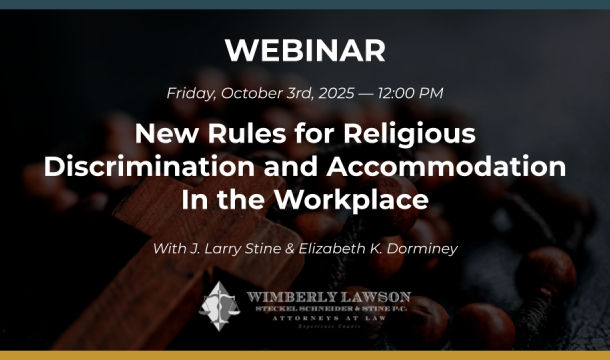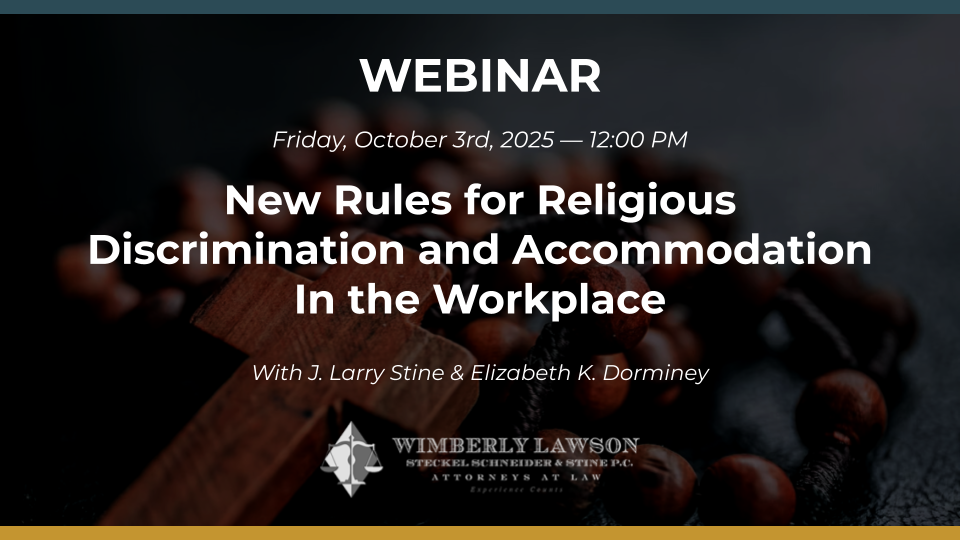Do You Know What Your Employees Are Posting on Social Media?
Social media is a great thing. How else would we be able to keep up with friends and family -- what they are doing, where they are going, and, of course, what they are eating? Some people also like to use social media to let others know what they are thinking—about just about any topic, including current events. However, when comments on social media contain racist, sexist, or other language that evidences discrimination against a protected group, can the person's employer take action against the employee for such comments? The answer can be found in many news reports just this past week:
- Three Columbia, SC firefighters were terminated this week for Facebook posts that were deemed racist.
- A firefighter in Savannah, GA was fired this week for a derogatory Facebook post.
- A court security officer was fired in Lexington County, KY for a racist Facebook post.
- Two Nashville, TN police officers have been decommissioned within a week of each other for posts on their personal Facebook accounts.
In many cases, the social media posts are brought to the attention of the employer or, even worse, the news media, because the employee has listed the name of his/her employer on his/her personal social media page.
Short of the tedious and time-consuming task of monitoring every employee's social media posts all the time, what can an employer do to try to avoid public embarrassment and scrutiny due to the social media posts of its employees?
- Conduct regular training on the Company's Policy against Discrimination and Harassment. Such training should be done annually, at a minimum.
- In addition, train supervisors to make it a practice to regularly remind employees at meetings about the Company's commitment to its Policy against Discrimination and Harassment.
- Consider implementing a social media policy. That policy should reference the Company's Policy against Discrimination and Harassment as well as any policies that address protection of confidential information and trade secrets. The Company should also advise employees that they cannot represent themselves as spokespersons of the Company without express written authority. [As we have noted in a previous blog post, the National Labor Relations Board is scrutinizing Social Media Policies to ensure that they do not violate employee Section 7 rights. Therefore, we recommend that you have qualified employment counsel review such policies.]
- Investigate any reports of inappropriate social media posts immediately and take action when necessary. You cannot prevent employees from expressing their opinions on social media. But when that expression crosses a line that violates the company policy against harassment and discrimination, and the company becomes aware of it, the company cannot simply ignore it; it must investigate and take action as it would in any situation where it learns of behavior that may be in violation of the company policy against harassment and discrimination.

Kathleen J. Jennings is a former principal in the Atlanta office of Wimberly, Lawson, Steckel, Schneider, & Stine, P.C. She defends employers in employment matters, such as sexual harassment, discrimination, Wage and Hour, OSHA, restrictive covenants, and other employment litigation and provides training and counseling to employers in employment matters.
Related Content
Get Email Updates
Recent Content

Trump Nominates Appointments to NLRB and EEOC but Policy Changes Likely to Be Delayed

DOL Launches Self-Audit Programs Designed to Help Employers Improve Compliance

DOL Must Release EEO-1 Reports to the Public under Open Records Laws

Current Advice on Active-Shooter Situations

New Policy for Federal Workers and Religious Expressions

